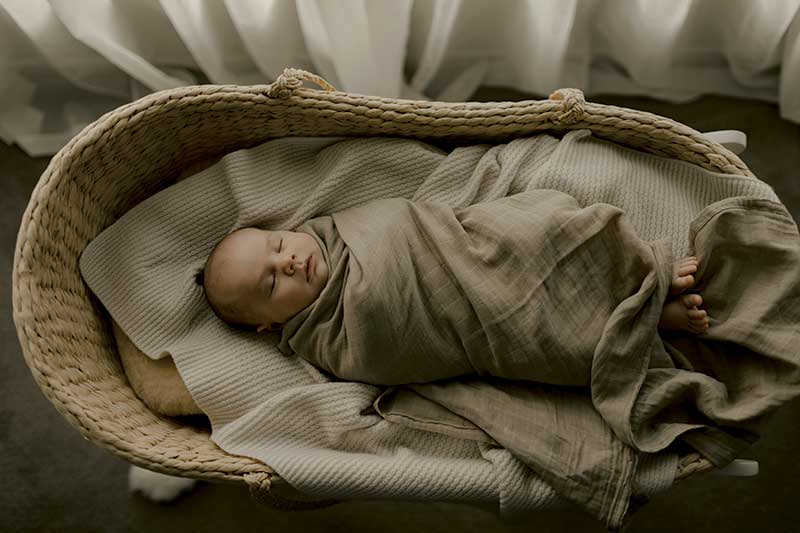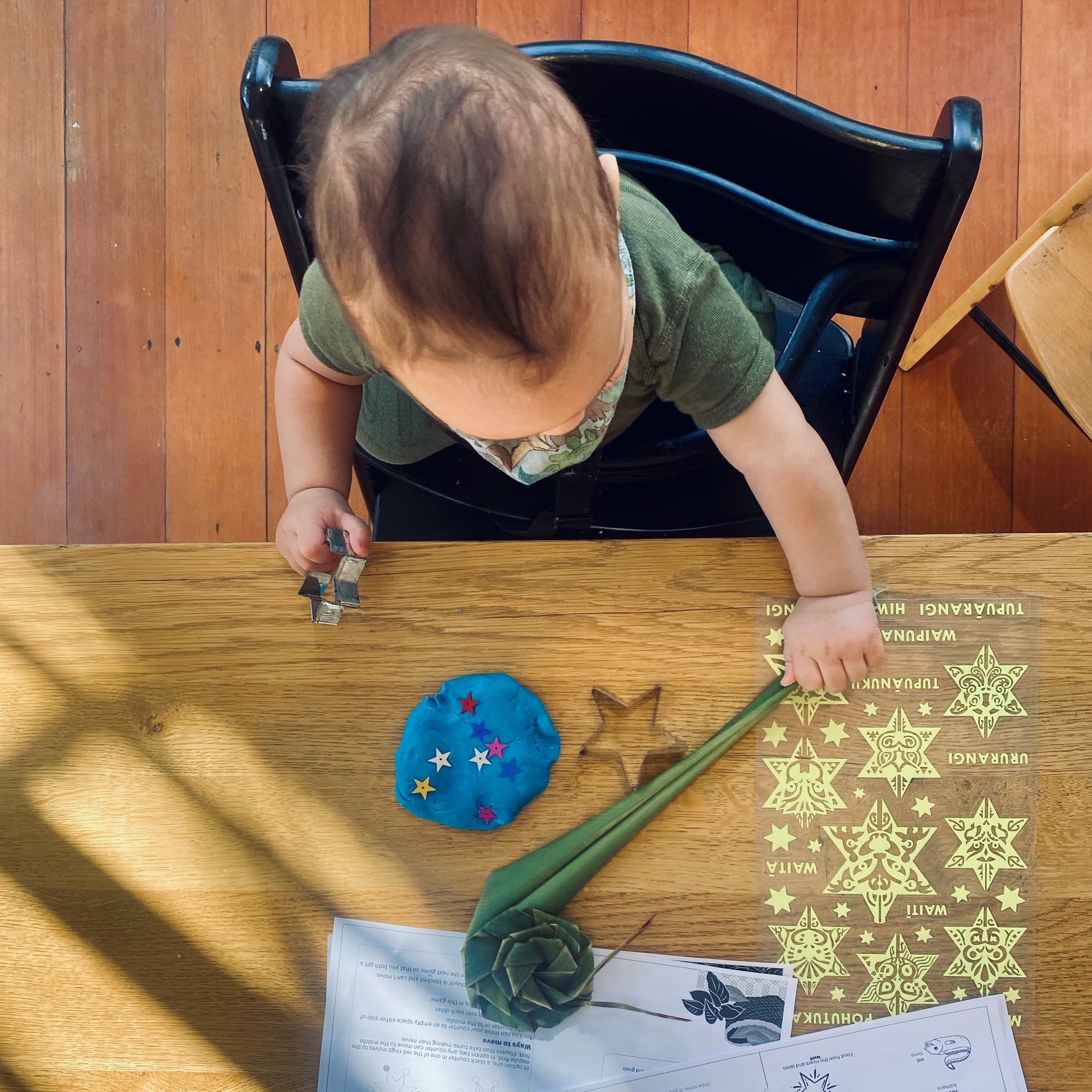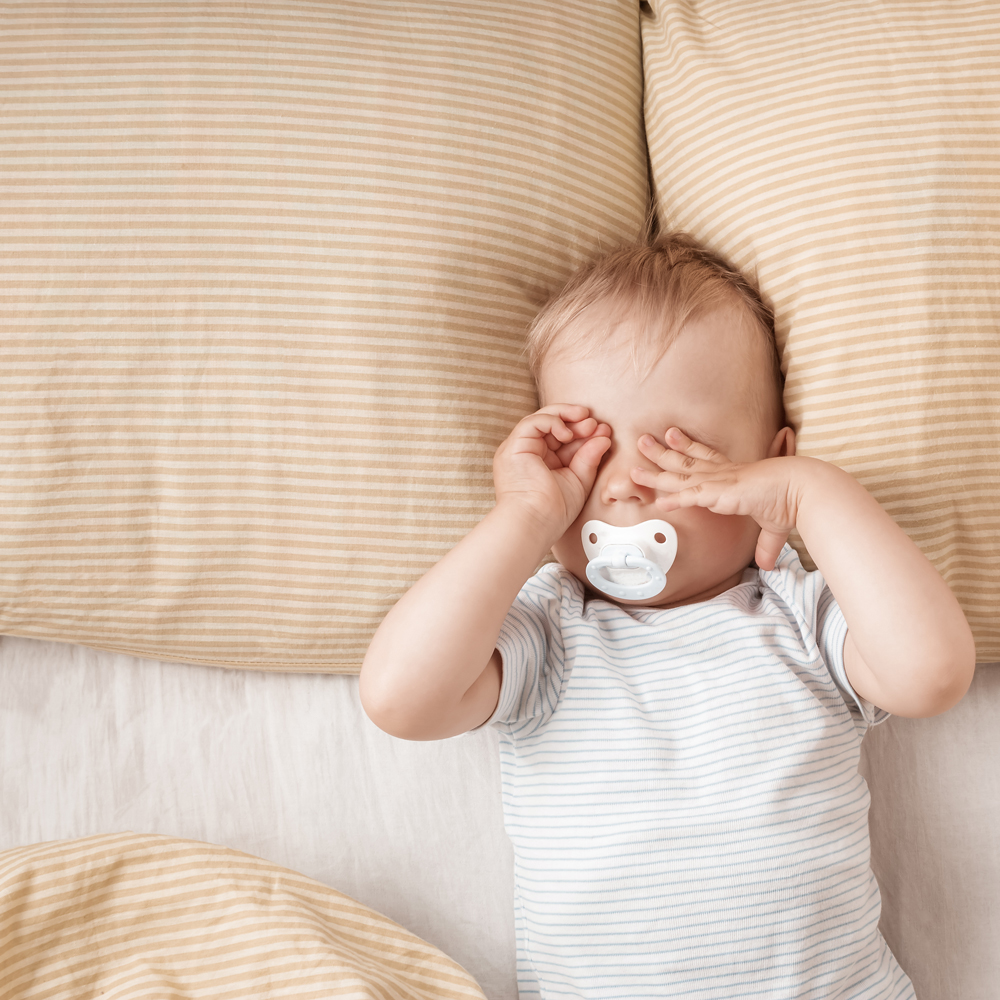Normal Newborn Sleep

PHOTOGRAPHY Kirsty Stone @thesearethegoldendays
Understanding normal newborn sleep, plus we share some helpful tips for naps to give you the confidence to meet your baby’s sleep needs.
WHAT’S NORMAL
Newborn babies can be very irregular and varied in their sleeping patterns. Every baby is different in how settled they are, how long they nap for, and what helps them get to sleep. It often changes from one day (or one nap) to the next as well. They can be restless, noisy sleepers and very rarely – if ever – sleep through the night without waking up as they need to breastfeed regularly.
Babies aren’t born with a circadian rhythm; they don’t yet have an internal body clock that tells them when it’s daytime or nighttime like we do. It is something that develops by the time they’re around three or four months old. As a result, babies rely on their parents or caregiver to tell them when it’s time to sleep, help them understand day versus night, and assist them in falling asleep.
HOW MUCH SLEEP DOES MY BABY NEED?
Newborn babies need to sleep a lot. The average newborn gets around 16 hours of sleep over the course of 24 hours. But, as they need to breastfeed frequently, they sleep on and off through the day and night. Their sleep is usually done in bursts that are anywhere from 20 minutes to a couple of hours in length.
For free help and advice with your baby’s sleep, join The Sleep Store’s Newborn and 4-12 Months Sleep Support Groups on Facebook.
TIRED SIGNS
In the early weeks, you’ll still be getting to know your baby so it may take a while before you pick up on their sleepy cues. Your baby can go from tired to overtired very quickly, and when they’re overtired it can be more difficult to settle them to sleep. To avoid them becoming overtired, once you notice your pēpi showing one or more tired signs, it’s time to get them to sleep.
A baby’s tired signs can include:
- Grizzling
- Rubbing their eyes
- Yawning
- Making clenched fists
- Tense or jerky movements
- Glazed look/staring into space
- Unfocused or poor eye contact
- Being easily startled
You don’t have to be quiet or silent when your pēpi is sleeping. They’re used to the loud sounds of your womb during pregnancy, so most babies are good at sleeping through noise.
AWAKE TIMES
You might hear friends, whānau or your LMC talking about ‘awake times’. This just means the approximate amount of time your baby may be awake before they’re ready to go back to sleep again. Remember these are just a guide and your baby may be tired sooner or later:
0-3 weeks old: 1 hour
3-6 weeks old: 1 hour 15 minutes
6-12 weeks old: 1 hour 30 minutes



